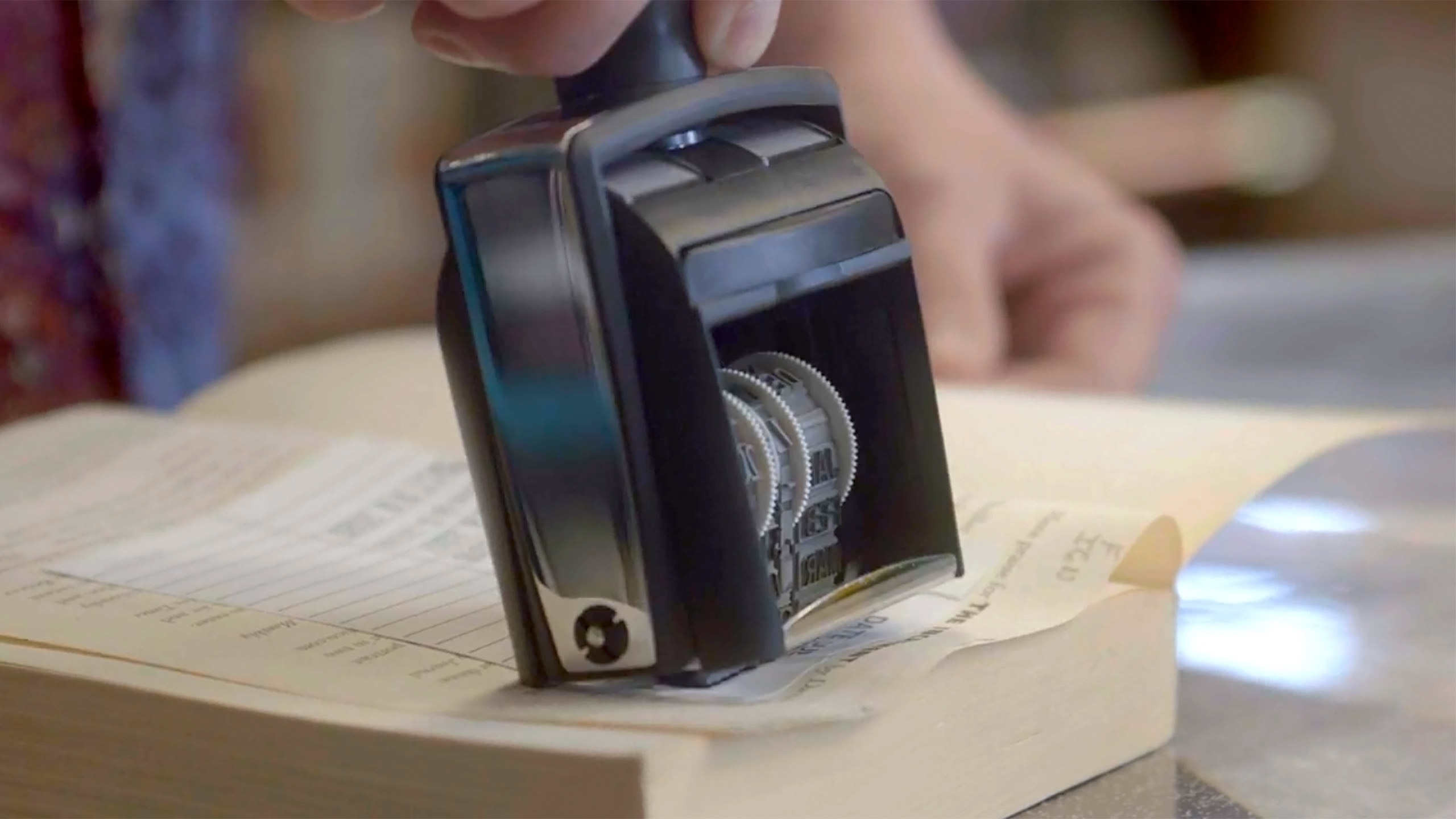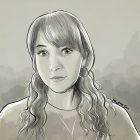This article first appeared in Volume 54, Issue 2 of our print edition of Index on Censorship, titled Land of the Free?: Trump’s war on speech at home and abroad, published on 21 July 2025. Read more about the issue here.
Book bans might seem like small fry in the grand scheme of the USA in 2025, but speak to those on the frontline of tackling censorship and it’s clear this is about much more than reducing library catalogues. It’s about controlling ideas.
“Why books?” Sabrina Baêta of PEN America has often asked herself. PEN is an organisation at the intersection of literature and human rights, and Baêta is the senior programme manager of its Freedom to Read workstream around schools. “If you’re controlling books, you are controlling what people know and what people have access to,” she said.
Reading, she says, is a transformative experience. And the fact that books hold vetted information carries weight. Controlling books controls the narrative.
Book bans in school and public libraries have steadily grown in the USA over recent years, often spearheaded by co-ordinated right-wing groups – groups such as Moms for Liberty, which was established in 2021 to advocate for more parental oversight of discussions and materials in schools touching on issues such as LGBTQ+ rights and racial justice history.
Baêta described how the group had backed Florida governor Ron DeSantis when he signed the Parental Rights in Education Act – dubbed the “Don’t Say Gay” law by its critics – in 2022, banning teachers from discussing gender identity and sexual orientation in primary schools. The ban was initially from kindergarten to third grade (five to eight-or-nine-year-olds), and has since been expanded.
According to news website Florida Phoenix, the Pinellas County chapter chair of Moms for Liberty said in 2023 that the group was advocating to increase the law up to 13- and 14-year-olds.
“What we’re seeing is state legislation playing a really key role in creating the censorship of these materials,” Baêta said, adding: “Three states – Utah, South Carolina and Tennessee – have mechanisms to ban books at the state level.”
The right-wing groups that often focus on individual school districts have a lot less work to do once books are being banned at state level.
Overtaking Utah, South Carolina is now the state with the highest number of mandated book bans in public schools. Its list of 22 books banned in all public schools includes Half Of a Yellow Sun by Chimamanda Ngozi Adichie, The Perks of Being a Wallflower by Stephen Chbosky, and All Boys Aren’t Blue by George M Johnson.
In May, the Texas House of Representatives passed a bill which will give school boards rather than librarians the power to oversee which new books go into schools. Moves such as this take autonomy away from experts, Baêta told Index. Librarians are well-trained and know what is age-appropriate for their students.
The Trump effect
As book bans have increased, PEN America has monitored and recorded censorship, run public awareness campaigns and collaborated with authors to stop their books being banned.
Then, as Donald Trump entered a second term as president, along came some concerning escalations.
“Book bans were called a hoax by the Department of Education, which obviously was a result of influence from this administration,” Baêta explained.
In January, the Department of Education’s Office for Civil Rights issued a statement about the “Biden book ban hoax”, as it dismissed 11 complaints about book removals (and six others that were pending), got rid of its book ban co-ordinator and rescinded department guidance that said book removal in schools might violate civil rights law.
“They’re staging a larger attack on what they would consider DEI [diversity, equity and inclusion] content, which a lot of the book content would fall under,” said Baêta. “So, it’s just creating this atmosphere of fear and intimidation.”
Removing books about queer lives and Black history sends a “clear and terrible signal”, she said, that there is something wrong with these identities, and that young people should not be exposed to them. It also removes a vital lifeline of vetted information about difficult topics including sexism, homophobia, racism, sexual assault and grief.
From what PEN America has seen, self-censorship is becoming more common. School staff avoid putting particular books on the shelves – or don’t buy them in the first place. Author visits are being cancelled based on the author’s identity or content of their books, although that is never explicitly stated.
For researchers such as Baêta, it’s a nightmare to keep on top of – “How do you track what didn’t happen?”
Light at the end of the tunnel
While there are alarming escalations, there are also positive moves. States including New Jersey, Illinois, Maryland and Minnesota have brought in laws to ban book bans, and the Freedom to Read Act is making good progress in Rhode Island (at the time of writing). The act aims to prevent governments from removing books that they disagree with politically.
PEN America, along with publishers, authors and families, are taking bold steps, too. They have filed lawsuits in Rutherford County, Tennessee, and Escambia County, Florida, against book bans in school libraries.
“Everyone is tackling these little fires, and then we’re all working together to tackle the big fire,” Baêta said.
PEN America co-ordinates on a national level, with eyes on the overall situation. But for Baêta it’s also about uplifting grassroots groups.
Librarians, teachers, students and parents are fighting bans in their own communities. There’s the Florida Freedom to Read Project, which brings together parent-led groups, and the Texas FReadom Fighters, led by librarians.
“Librarians – who would have known they would have been our warriors?” Baêta said, describing the huge number she knows who have received death threats simply for having particular books available.
Librarians: canaries in the coal mine
This alarming situation in the USA is documented in a new film, The Librarians, which had its international premiere at the UK’s Sheffield DocFest on 18 June.
“If you can control the library, you can control the community … of course they’re coming for school librarians first,” one anonymous librarian tells the camera, before another appears in tears, aware that they are likely about to lose their job for protecting their library.
Others detail the violent threats they have received. One librarian talks about the security now installed around her home.
In one scene, librarians are pulled into a meeting about removing books that don’t conform to conservative sensitivities. One secretly records the meeting, catching directives including: “If it is not what you believe, you’d better hide it.”
The film’s director, Kim A Snyder, spoke to Index on the morning of the premiere.
“We really felt it was important to focus on the attack on our librarians themselves and as the gatekeepers, the curators of knowledge,” she said. “They see themselves as the canaries in the coal mine.”
Aggression against librarians plays out during the documentary, with right-wing individuals calling them “paedophiles” in meetings. The film follows events at librarian conferences, where safety is a real concern.
Snyder told Index that these fears were playing out behind the scenes of the documentary, too. The film was screened at June’s American Library Association conference in Philadelphia. The event drew thousands of people, and brought together the librarians from the film for the first time.
“We are definitely thinking hard about making sure everybody feels as safe as we can,” Snyder said, speaking to Index prior to the event. “The news of what happened with the political assassinations in Minnesota really rattled me, and others.” (She is referring to the two state lawmakers who were shot in their homes in June, leaving one politician dead and the other seriously injured.)
Some of these librarians, she added, have stalkers.
The film also details the risk that teachers in Florida could be charged with felonies over books in their classrooms. In Granbury, Texas, a law enforcement officer has already tried to bring charges against three librarians for what they held in their libraries.
“It’s an exposé that needs to happen… we are actually looking at a very concerted and aggressive attempt to criminalise librarians for either choosing to put out certain books or refusing to take them off the shelf,” Snyder said.
She fears this culture is being exported elsewhere, and said it not only emboldens fascist tendencies in leaderships around the world but also emboldens individuals and organised groups to be more aggressive with their messaging around book bans.
But she hopes that, on the flip side, seeing a librarian from a small town in Texas stand up and say “No” will offer a beacon of light.
Beyond libraries
Since the start of Trump’s second administration, the book banning battlegrounds have expanded beyond schools and public libraries.
When the National Park Service scrubbed the Stonewall National Monument website of the word “transgender” in February, following Trump’s executive order recognising only two genders and denying trans existence, it also removed a recommended reading list about the Stonewall Uprising. (PEN America has republished that list.)
Then, in early April, the navy removed 381 books from the US Naval Academy Library after being ordered by defence secretary Pete Hegseth’s office to review and remove any books promoting DEI. Army and air force libraries have been given the same directive. Some of the books removed from the Naval Academy included How to be an Antiracist by Ibram X Kendi and I Know Why the Caged Bird Sings by Maya Angelou.
Another was Good Boy: My Life in Seven Dogs by Jennifer Finney Boylan. It is a memoir about Boylan’s life, through dogs. But it seems unlikely her Dalmatian was the cause of the upset. Boylan, who is president of PEN America, is transgender – and while the book is about her life before transition it is, in her words, “about a transgender person’s love of dogs”.
“These are America’s future officers and diplomats. These are the people who are going to be defending and representing the United States around the world,” Boylan told Index. “They need to understand that the world is a large place, and that there are people in the world who will have ideas with which they disagree.”
She explained that the federal government doesn’t have much control over what happens in most libraries, but one thing it can control is the libraries in military colleges and academies.
Why books are banned
Boylan’s memoir She’s Not There: A Life in Two Genders, the first bestselling book by a transgender American, has been pulled from some school districts in Texas. And as we talk, she’s just heard that the book she co-authored with Jodi Picoult, Mad Honey, has been banned from some school districts.
“That’s three books of mine that have been deemed unsafe. And the question is, why? Are these books that advocate for violence? Are these books that argue for any kind of extreme ideology? They’re not. They’re books that simply tell the story of what life is like for someone like me,” she said.
Picoult received the unenviable accolade of having the most-banned book of the 2023-24 school year with Nineteen Minutes.
She told the UK’s Hay Festival audience last year that for the book banners, “the problem is that, on page 313, I use the term ‘erection’.”
But Boylan isn’t so sure that’s the real motivation.
“I think the real reason that book is being banned is because it’s a book about a school shooting, and to some degree the book makes a case for why we should have better control over guns in this country,” Boylan said.
In her view, books are being banned because of the doors they open in people’s imaginations.
“I can’t tell you how many times readers have said to me, ‘I always understood this abstractly, but your story enabled me to live it’,” she said. “And that’s what the people who are banning books want to prevent. They don’t want people’s hearts opened. They don’t want people to understand that there’s more than one way of viewing the world.”
But she added: “My books don’t disappear just because you ban them. The ideas in those books don’t disappear… My books are not disappearing any more than I’m disappearing.”
While the move to ban books and control the American narrative is organised and co-ordinated, it’s clear that the line of defence is, too. And as Baêta said, Americans do not want book bans.
Indeed, a pastor in The Librarians who is standing up against the Bible being used to justify book bans, says that “this can’t be America”.
“[At the] core of being American is being able to explore these different topics, speak your mind. More so than almost any other country in the world, we protect free expression, even when it’s ugly, even when it’s bad,” Baêta said.
“The censorship of any of this… it’s distinctly un-American – even though it’s being perpetrated by an American government, by American states. It is un-American.”






